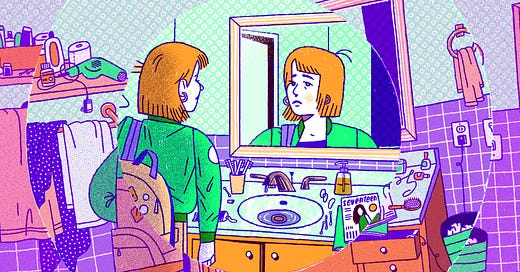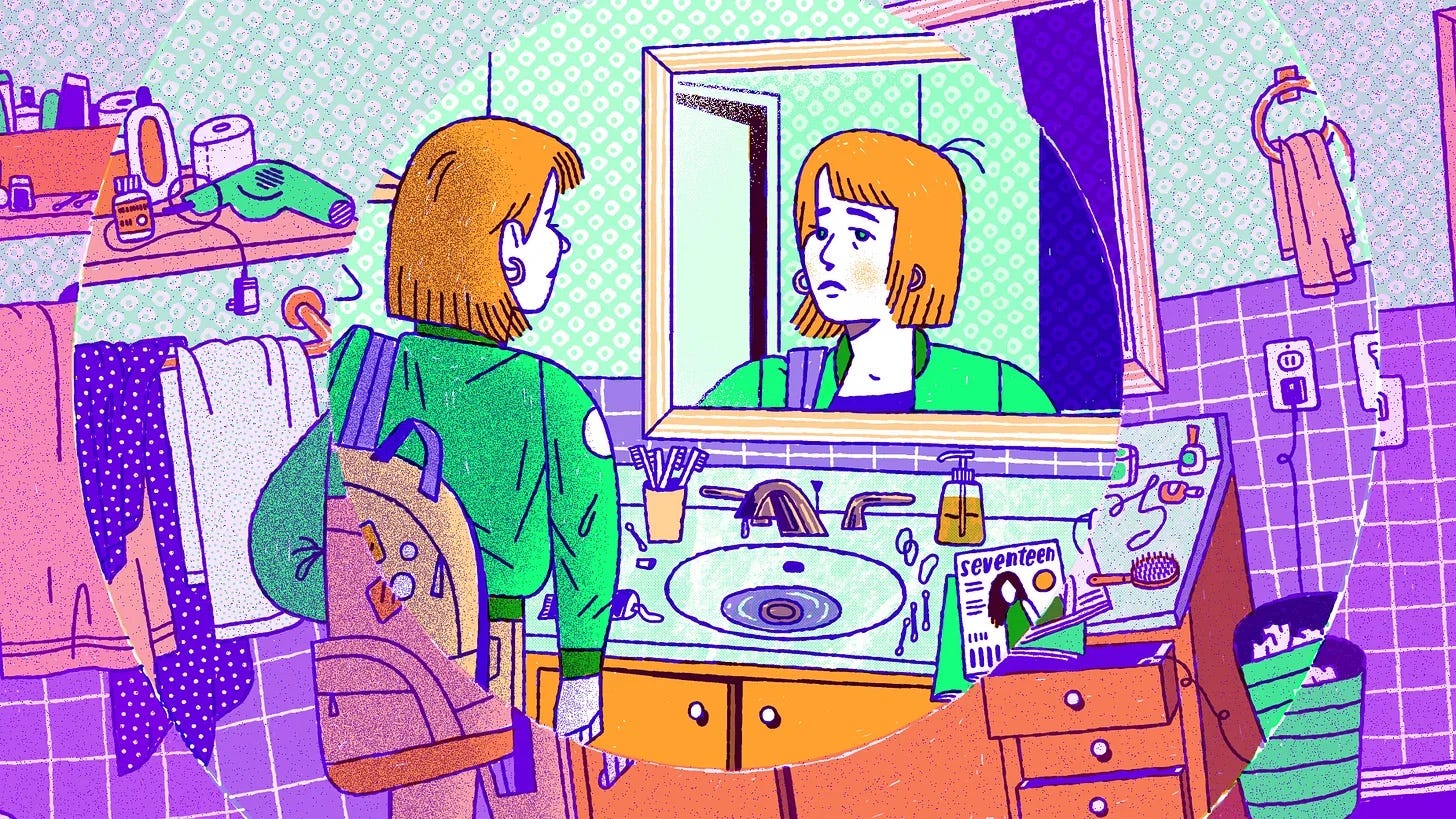My Teenage Life After Leaving a Cult
I spent my childhood waiting for the apocalypse. When it never came, I grasped at anything I could to feel in control, from binge drinking to suicide.
I stood eyeing myself in the mirror before my second day of public high school. At 15 years old, I was determined not to get kicked out of class again.
“Do I look okay?” I asked my twin sister, Tamar. I was wearing a bomber jacket, Dickies, and Converse All Star tennis shoes. The day before, I had been dismissed from class for showing too much cleavage, and I didn’t want to make the same mistake again.
“Looks fine to me,” Tamar said.
I tucked an issue of Seventeen magazine inside my jacket. In that magazine was the secret I had just discovered and shared with my siblings: we had grown up in a cult. This was the reason we felt out of place and unable to fit in after moving to California. The day before, I’d read an article about a girl who had escaped a cult and an accompanying quiz consisting of five questions. If I answered “yes” to at least three, it said, I might have grown up in a cult. I answered “yes” to all five.
Growing up in the Children of God I hadn’t been allowed to make any decisions for myself. Father David dictated how we lived and where we lived. From the clothes I wore to the food I ate to the friends I had – everything had been decided for me. After the death of Father David, our leader on the compounds in Southeast Asia, the cult slowly disbanded. Now, we were living in Dad’s home state of California after growing up hearing that America was a forbidden land, the epicenter of evil, and would be the first to burn in hell in God's judgment during Armageddon before the Great Apocalypse that would come in 1993. It was now 1996.
High school was my first chance at normalcy, and I wanted nothing more than to be normal after living a life over which I had no control. I cut my hair and dyed it an awful carrot color, and I complemented my new hairstyle by wearing jeans, jewelry, tennis shoes – anything that had been forbidden.
On the way out the door, I passed Mom in the kitchen getting our six younger siblings ready for school. A few months earlier she had found out she had advanced cervical cancer and was now getting daily radiation treatment. Even after 12 children and two stillbirths, Mom rarely went to see a doctor in the cult. Father David did not encourage modern medicine and would have disapproved of her decision to seek medical care even though her cancer was life-threatening. Dad had enrolled in college to try to get a job, something he wasn’t allowed to do before even though he had excelled as a geology student right before joining the Children of God.
My parents were too busy trying to make ends meet to worry too much about us older kids and our adjustment, but when they did try to control us, Dad was stern and Mom was unforgiving as if we kids were the ones who had done something wrong when we all knew we hadn’t; they were the ones who joined a cult and we were born into it. My siblings and I reacted to the newfound revelation from Seventeen magazine about our childhood in different ways.
John, my oldest brother, was holding down multiple jobs and after work stayed out all night with his friends, partying in the rave scene. Mary Ann, my older sister, had frequent breakdowns and started acting strange, dressing in colorful clothes and telling her friends to “eat dirt” (for a while that was all she said to anyone). Heidi, my younger sister, spent much of her time away from home with new friends who lived down the street and dressed in black, wore smeared eye makeup, and chain-smoked cigarettes. She started listening to bands like Nirvana and Rage Against the Machine. One day she came home with a neat row of razor slits on the insides of her wrists. When Dad drilled her about it, she said, “Shut up. How dare you tell me what to do? You raised us in a cult!” Soon this was our response to our parents’ every feeble attempt to manage us, or perhaps step into their role as parents for the first time. In the cult, we were constantly watched by other people we called our “shepherds.” Now, for the first time, we were trying to be a family.
Keep reading with a 7-day free trial
Subscribe to Narratively to keep reading this post and get 7 days of free access to the full post archives.




